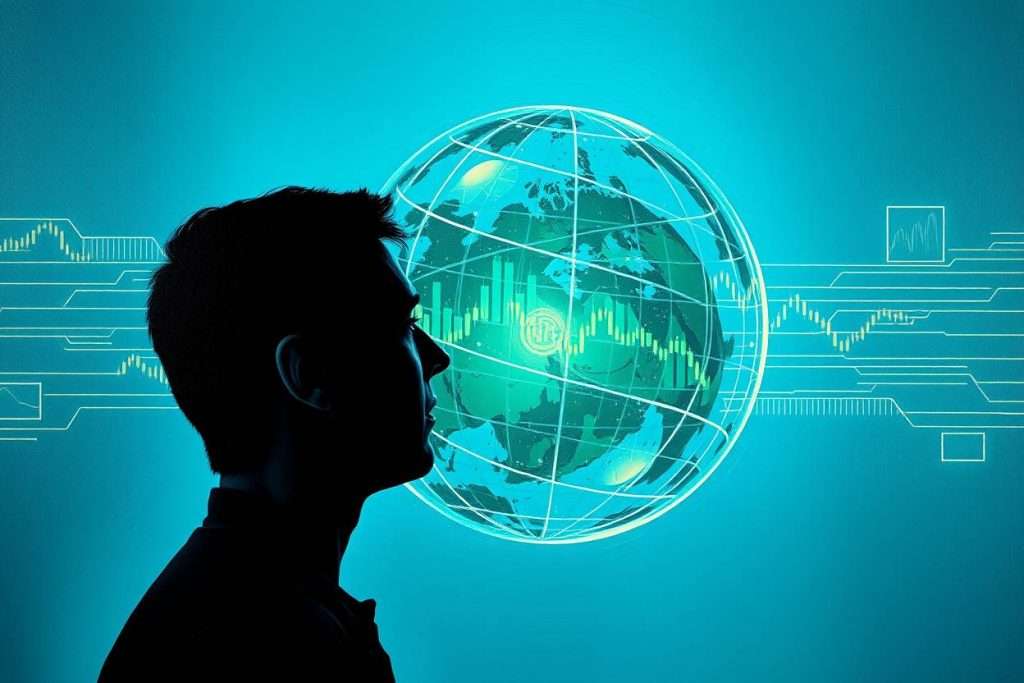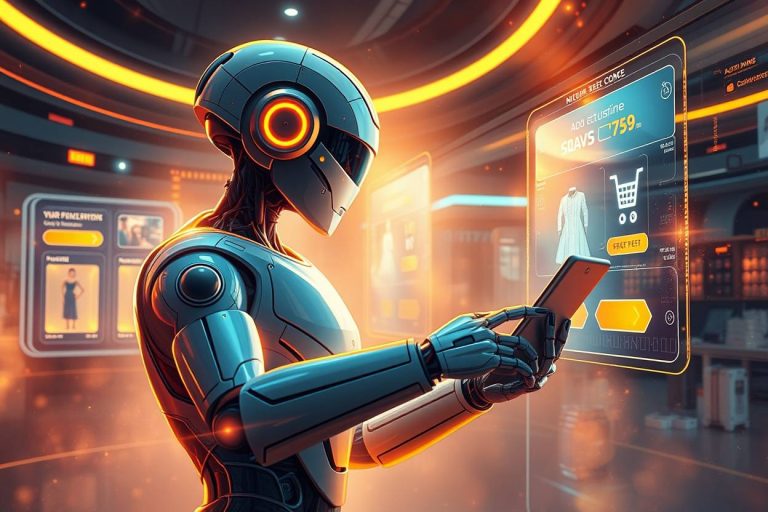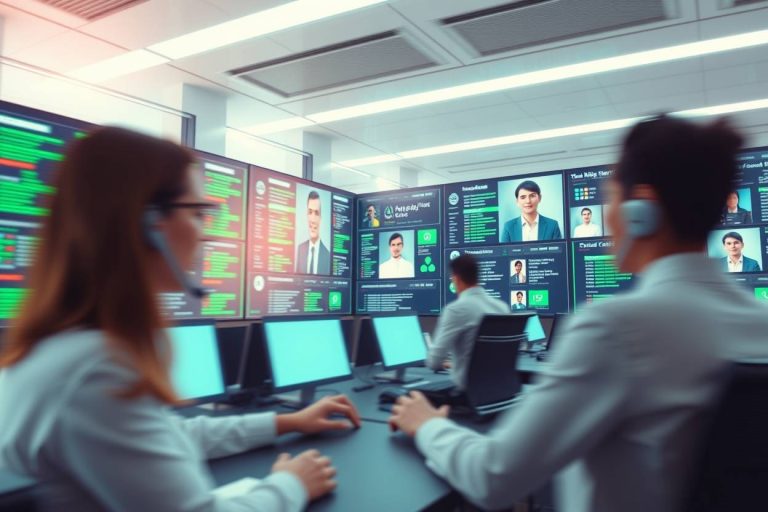Can You Use AI to Trade Stocks: What You Need to Know Before You Start

Using AI to trade stocks is the application of computational systems designed to analyze market data, find opportunities, and execute trades automatically. Modern systems leverage machine learning and algorithms to process vast amounts of information, including historical data, news, and economic indicators, to make investment decisions.
Understanding if AI can actually improve returns is no longer a futuristic consideration; it’s a present-day reality, with these tools already moving from exclusive institutional strategies to accessible retail platforms that are fundamentally changing the approach to modern investing.
What is AI-based stock trading?
AI-based stock trading uses artificial intelligence to make trading decisions. These systems analyze market conditions and execute trades when specific criteria are met. AI can generate trading signals for traders or function as fully automated bots that manage entire portfolios. The core of AI trading is its ability to learn from data and operate without the emotional biases that affect human traders.
Can You Use AI to Trade Stocks?
Yes, you can use artificial intelligence (AI) to trade stocks. AI trading uses computer programs to analyze market data, find opportunities, and make trades automatically. These systems process huge amounts of information, like price history and news, to make faster, more logical decisions than humans typically can.
Can AI read stock charts and market data?
AI analyzes stock market data and charts by processing large datasets to find patterns and trends. Unlike human traders, AI can simultaneously sift through historical prices, financial reports, and news sentiment to build a complete market view.
- AI capabilities for reading and interpreting stock charts: AI is effective at technical analysis and can read stock charts to forecast price movements. It learns to recognize patterns like moving averages and support and resistance levels to generate data-driven predictions.
- Types of AI models and algorithms used in trading: Different AI models are used in trading. Machine learning is the foundation, while neural networks find complex patterns in financial data. Other techniques include deep learning for more advanced analysis and natural language processing (NLP) to interpret news and social media sentiment.
Is it legal to use AI to predict stock market?
Yes. Regulatory bodies, including the Securities and Exchange Commission (SEC) and the Financial Industry Regulatory Authority (FINRA), permit the use of AI for trading. However, anyone using these technologies must comply with all existing financial laws.
The primary focus of regulators is on preventing market abuse. While AI trading is legal, it is monitored to ensure fairness and stability. Key considerations include:
- Preventing Market Manipulation: AI must be used to forecast market movements, not to artificially create price changes or spread false information to deceive others. The intent behind the strategy is what separates legal prediction from illegal manipulation.
- Ensuring Transparency: Firms using AI may be required to explain the logic behind their AI-driven trades. Maintaining clear records and providing human oversight are crucial to prevent algorithmic errors that could disrupt the market.

How AI Can Help Your Trading
AI can improve trading strategies by providing deeper analysis, automating trades, and taking emotion out of the equation.
Can Al make good stock picks?
Yes, AI can make good stock picks. It screens thousands of stocks based on criteria like financial health and growth potential to identify opportunities. This comprehensive analysis helps AI identify stocks that can help pick stocks more efficiently than manual methods.
How accurately can Al predict stocks?
While AI offers a statistical advantage, it cannot predict stock movements with perfect accuracy due to the market’s inherent unpredictability. The performance of AI models varies significantly between academic studies and real-world applications.
In scientific studies, AI models using neural networks, logistic regression, and SVM have demonstrated impressive results, achieving over 70% accuracy in predicting the directional movement of major stock indexes. However, real-world accuracy is often more modest. Some sentiment-based models report accuracy rates of 66% for price increases, while many experts suggest the highest practical accuracy is closer to 52% due to constant market volatility.
As a recent example, a 2024 Forbes report noted that a GPT-4 based model reached approximately 60% accuracy in predicting corporate earnings changes—a key driver of stock prices. These figures show that while AI can provide an edge, its predictions are probabilistic, not guaranteed, and should be used as one tool among many in a comprehensive trading strategy.
How to use AI for stock analysis?
You can use specialized AI platforms to analyze stocks. Traders can use platforms with AI-driven news feeds, predictive analytics, and automated charting tools.
Which Al is best for stock market analysis?
The question of which AI is best for stock market analysis depends on a trader’s needs. Popular platforms include:
- Tickeron: Offers trading bots and daily buy/sell signals.
- TrendSpider: Specializes in AI-powered technical analysis and automated charting.
- DanelFin: Provides an “AI Score” for stocks and generates trade ideas.
Is it good to use AI for trading?
Using AI for trading offers major advantages but also comes with significant risks.
What are the benefits of using AI in trading?
- Speed and Efficiency: AI systems execute trades in a fraction of a second.
- Emotion-Free Decisions: AI follows its programming, avoiding costly mistakes driven by fear or greed.
- Deeper Analysis: It can process massive datasets to find hidden opportunities.
- Better Risk Management: AI can monitor positions and adjust them automatically to reduce potential losses.
What are the risks and challenges of AI trading?
- Reliance on Past Data: AI may fail during unexpected market events (like a financial crisis) because it has no historical data for them.
- “Black Box” Problem: The logic behind some complex AI decisions can be unclear, making it hard to fix errors.
- Need for Quality Data: The AI’s predictions are only as good as the data it’s fed. Bad data leads to bad trades.
- Human Oversight is Required: AI is a tool that still needs human supervision to manage its limitations and prevent costly errors.

Who Should Use AI for Trading?
AI trading tools are available for everyone, from beginners to large institutions.
- Beginners can use robo-advisors, which automatically build and manage a portfolio based on their goals and risk tolerance.
- Advanced traders and institutions use AI for high-frequency trading and building complex, custom models that manage billions of dollars.
The main difference is scale. Institutions use immense resources to gain a tiny edge, while individual traders use more accessible platforms to automate their personal strategies.
Can Trading Be Replaced By Al?
It’s unlikely trading can be replaced by AI entirely soon. AI excels at data analysis but lacks the human ability to understand broader market context, like geopolitical events. The future is likely a hybrid model where AI assists human traders, who focus on strategy and risk management.
Is there an AI that tells you when to buy and sell stocks?
Yes, there is an AI that tells you when to buy and sell stocks by providing signals. Platforms like Tickeron offer these recommendations, but they are not foolproof and should be used as part of a broader strategy.
Can AI guarantee profits in stock trading?
No, AI cannot guarantee profits. Its predictions are based on probability, not certainty. The question of can AI beat the stock market consistently remains unanswered, as no system is immune to risk.
What ethical and regulatory concerns exist for AI trading?
Ethical concerns include the potential for AI to be used for market manipulation. Regulators are focused on ensuring transparency and fairness, but the rapid evolution of technology presents an ongoing challenge.
The Future of AI in Trading
The future of AI in stock trading is a partnership between humans and machines. AI will become an essential assistant, handling complex data analysis while humans focus on strategy and oversight. It will make sophisticated tools more accessible to everyday investors and allow for more informed, data-driven decisions across the board.
Is AI a “magic” solution?
No. AI is a tool that provides a statistical edge, not guaranteed profits.
Is AI trading risk-free?
No. AI systems are still subject to market volatility and unexpected events. A solid risk management plan is essential.
What Does the Future Hold for AI in Stock Trading?
The future of AI in stock trading is poised for significant expansion, with market data underscoring its growing integration into the financial industry. The artificial intelligence (AI) in trading market is valued at approximately $24.53 billion in 2025 and is projected to reach $40.47 billion by 2029, growing at a compound annual growth rate (CAGR) of about 13.3%. Similarly, the global AI trading platform market is calculated at $13.52 billion in 2025 and is forecasted to reach around $69.95 billion by 2034, reflecting an even faster CAGR of 20.04%.
This rapid growth signals a future characterized by continued innovation and deeper integration of AI into all aspects of the investment process. As AI technology becomes more powerful and accessible, it will continue to level the playing field between retail and institutional investors and create new opportunities for those who can effectively harness its capabilities.




